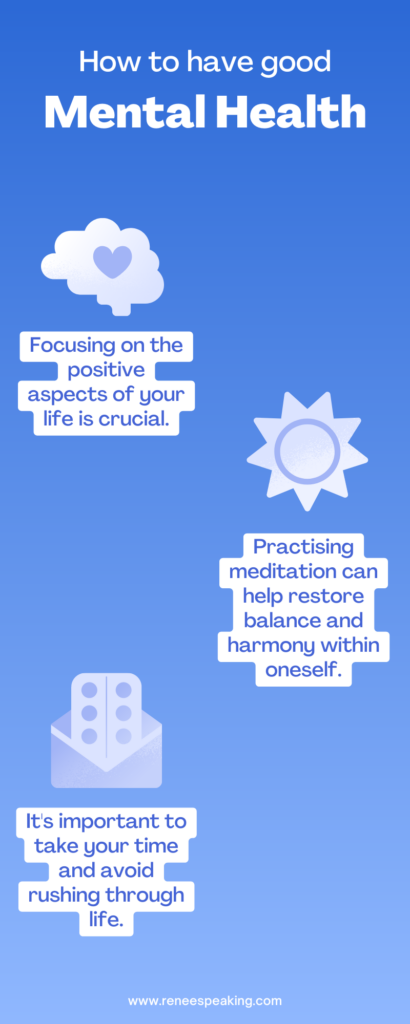This post is about why is it important to talk about mental health issues.
This post may contain affiliate links, which means I’ll receive a commission if you purchase through my link at no extra cost. Please read the full disclosure here.
As a busy mum in my 40’s, it’s important for me to prioritise my mental health.
From engaging with a therapist to practising mindfulness and gratitude, every little bit helps. It helps in the fight to stay mentally strong for my family.
In this blog post, you will learn why it’s important to engage in conversations about mental health and how it can empower your overall well-being.
Why Is It Important To Talk About Mental Health Issues

4 Reasons Why Discussing Mental Health Matters
- Breaking the Stigma: By talking openly about mental health, we help break the stigma surrounding it. This encourages others to seek help without feeling judged or ashamed.
- Expanding Awareness: Discussing mental health issues raises awareness among individuals who may be unaware of the prevalence and impact of these challenges.

- Providing Support: When we talk about our mental health, we get to experience helping others with their struggles. Having meaningful conversations allows us to show support and empathy to those experiencing mental health difficulties.
- Encouraging Help-Seeking Behaviour: When we openly discuss mental health, we show what it’s like to reach out for professional assistance. This could encourage others to do the same.
Practical Strategies for Mental Well-being
- Self-Care: Prioritise self-care activities that promote mental well-being, such as practising mindfulness, engaging in hobbies, or spending time in nature.
- Building Resilience: Learn strategies to cope with stress and adversity, such as practising deep breathing exercises, journaling, or seeking therapy.

- Work-Life Balance: Create a distinction between work and personal life even if you work from home. Knowing when to switch off from work is imperative in having the mental strength to get through our daily life. It also reduces the rush of burnout when we allow ourselves to set boundaries bet then work and home.
- Peer Support: Join online mental health communities such as Facebook pages, Instagram pages and online forums. It’s so easy and accessible to be able to connect with like-minded people and friends who can help encourage you on your mental health journey.
Valuable Resources for Mental Health
- Positive Psychology: A comprehensive guide on stress management techniques and coping mechanisms.
- Better Up: An empowering blog that offers practical solutions for improving mental well-being and work-life balance.
- Mind: A supportive online community that provides access to peer support, educational resources, and personal growth tools.

Final Thoughts
By having conversations about mental your health, you can feel more empowered and confident to tackle everyday challenges.
Don’t be afraid to share your experiences as someone else might be struggling with the exact same thing! I was so surprised when I started sharing my mental health struggles and how many people were supportive because they too were suffering.
When we share and talk about our mental health, we contribute to a more inclusive and supportive society. This is particularly important for people within the 30-49 age range, who are seeking accessible and relatable information and resources.
Together, let’s break the stigma, raise awareness, and create a community where everyone feels supported on their mental health journey.
This post was all about why is it important to talk about mental health issues.


